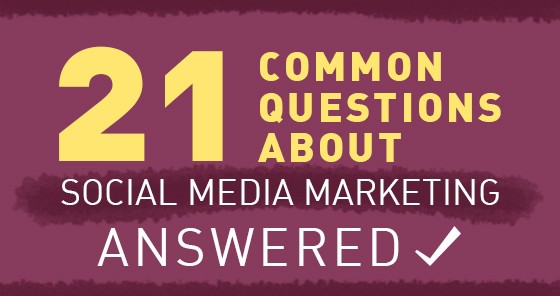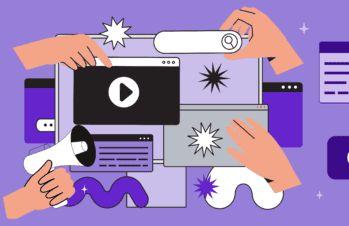Here at Zen Media, we often get questions from businesses about online marketing, and we do our best to answer each one! However, it occurred to us recently that it might be helpful to create a blog that answered the most common questions we get related to web marketing. So here we go! Our responses to your 30 most common social media marketing questions.
30 Social Media Marketing Questions Answered
1. What is social media marketing?
Social media marketing (SMM) is a type of digital marketing that enables companies to market their products or services using social networking websites and mobile applications. These platforms allow consumers to share opinions about brands directly with others who they know socially. These sites also provide analytics tools to track consumer engagement, which can help shape your social media strategy.
There are different types of online communities, including Facebook groups, LinkedIn, Instagram, Snapchat, YouTube, Pinterest, X (formerly Twitter), Tumblr, TikTok, Reddit, and blogs; each may require its own set of unique tags. Each platform provides its users various ways to interact with the network by posting comments, uploading content, sharing images/videos, blogging, messaging friends, voting, commenting on other people’s posts, and much more.
Consider your audience demographics to determine the best platforms and strategies to guide your marketing efforts, social presence, and digital marketing strategy.
2. How does social media differ from traditional advertising techniques?
Traditional advertising methods have been around for a long time. Marketers have relied on printed materials, radio, television, and even billboards to advertise their brand. While these forms of advertisements still exist today, they are not effective in communicating with modern audiences. In comparison, social media provides marketers a way to connect directly with consumers through online communities. Through social networks, businesses can post content, build trust, and receive feedback about their product or service. If done right, these interactions can lead to sales.
3. Can social media marketing really help my business?
Most definitely! It’s been proven again and again by business after business. In fact, more than half of internet users (56%) purchase a product online each week. Omnichannel marketing is highly effective, with most consumers using at least three channels for each purchase journey. Having an online presence is expected these days, therefore not utilizing social media marketing can actually harm your business.
4. What are the benefits of social media marketing for my company?
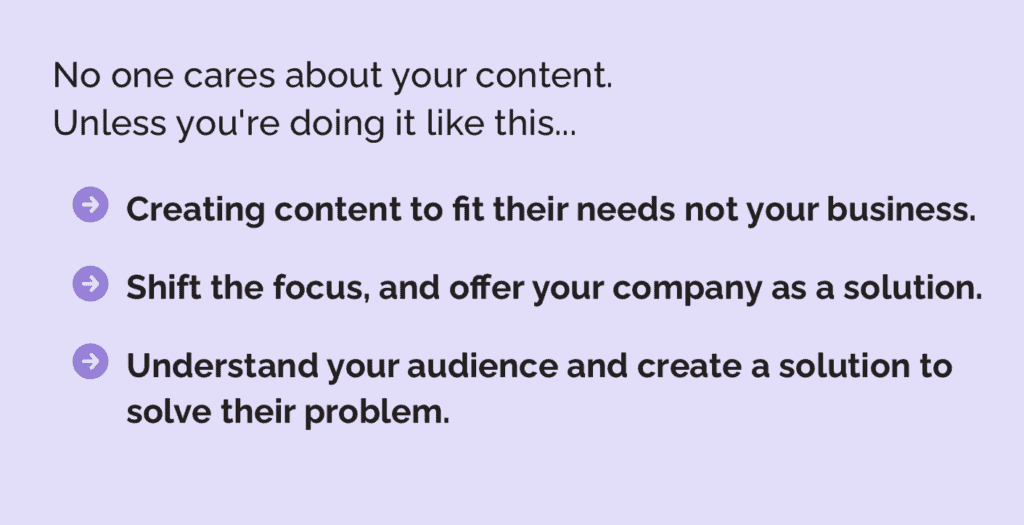
Whether or not your business is taking advantage of it, social media has forever changed the way that consumers communicate with businesses, and vice versa. Being accessible to your customers – and your prospective clients – via social media is a vital means of developing relationships with them and helping them through the sales funnel.
Here are just a few of the benefits of using social media marketing for your company:
Increased visibility
As mentioned earlier, social media gives your company increased exposure. People can find your business no matter what city they live in simply by searching for your name.
Targeted traffic
Another benefit of social media marketing is that you can target specific audiences based on demographics, location, interests, age, gender, and even income level.
Improved SEO rankings
Since search engines favor social media results over traditional web pages, having a strong presence on social media can help improve SEO rankings.
More customer service
Many social media sites give you the chance to communicate directly with your customers. If someone asks a question, you can answer them directly. This is important considering 53% of X users find it helpful to see how brands handle issues and answer questions on the platform.
Brand awareness
Having a strong social media presence helps create positive word-of-mouth advertising. Your customers can feel free to talk about your business and engage with you on social media without feeling self-conscious.
Customer loyalty
A final benefit of social media marketing that should not be overlooked is building customer loyalty. When 61% of consumers recommend your brand to friends and family, that’s trust that will lead to repeat purchases and new customers. When your customers love what you sell, they’ll likely buy from you again—and tell everyone they know about it.
5. How should companies measure their social media marketing success?
Social media marketing success is measured using the same metrics you use for any other marketing activity: traffic, leads, and customers. Counting the number of fans or followers you have can help you understand your social media reach, but the bottom line that determines its success is how many people it drives to your site, how many of them are qualified leads, and how many of them actually become customers.
6. How much does social media marketing cost? What’s the ROI?
One thing is for certain – social media marketing is never free. Whether you’re spending your own valuable time on it, asking an employee to add it to their workload, hiring a social media employee, or outsourcing to a marketing firm, there is always a cost. The key is to get the maximum ROI out of the time or money you put into it. It’s important to remember, however, that ROI doesn’t have to mean revenue. It can also mean meeting other objectives, such as getting new leads, increasing email subscriptions, or even boosting customer satisfaction. The ROI you end up with is the direct result of how focused your social media marketing strategy is.
7. How can I get started when I’m not even familiar with social marketing?
Not sure how to shape a strong social strategy? Don’t worry, we’ve got you covered. Our team of experts can take care of everything from brainstorming ideas to posting content and monitoring analytics. We’re here to help you build your online community.
8. Which social media platforms should my business have a presence on?
There’s no set answer to this question because you need to have a presence wherever your customers are—and different businesses have different audiences. One demographic spends most of their time on Facebook, while another really only engages on LinkedIn, and some divide their time equally between three or more sites. Find out where your customers are and follow them there.
9. Does my company really need a blog for social media marketing?
Yes! A blog is one of those non-negotiable assets you need in marketing. Apart from all of the benefits it provides on its own—such as increasing your credibility as an industry expert and providing fresh, keyword-rich content on a regular basis to please the search engines—a blog is a vital component of social media marketing. Links to blog posts are some of the most effective types of content to post on social media, especially on Facebook after its recent algorithm changes. Without fresh blog posts being shared on a regular basis, you won’t have nearly as much to talk about with your consumers, and you won’t drive as much traffic to your site, either.
10. Is social media marketing better for B2C or B2B businesses?
It’s important for both, but in different ways. While B2C businesses can focus on more light-hearted, fun social media posts, B2B businesses need to use social media to share valuable B2B content marketing. However, social media is a vital tool to both when it comes to connecting a business with its customers.
11. How should we be using Facebook for marketing?

Facebook is the social media platform of choice for over 1 billion people worldwide. Use it to connect and interact with your audience, and to share your content in a way that encourages your fans to share it as well.
12. How should we be using X (formerly Twitter) for marketing?

X has over 619 million users and is ideal for sharing your content and connecting with other influencers in your industry.
13. How should we be using LinkedIn for marketing?

LinkedIn has over 1 billion members. It is a great place to share your credentials with the world, but more importantly, it’s the perfect place to interact with your audience online. Using LinkedIn Groups, you can answer questions and contribute to discussions in order to demonstrate your industry thought leadership as well as your willingness to help others generously.
14. How should we be using Instagram for marketing?
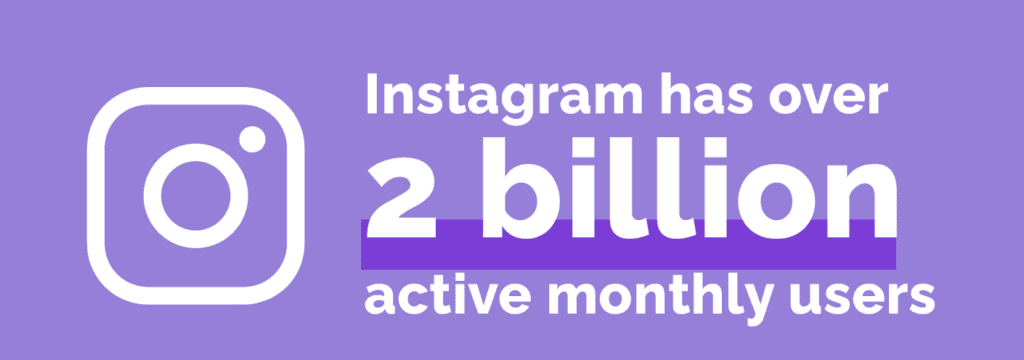
Instagram is under the Meta umbrella and boasts over 2 billion active monthly users globally. With Stories, Reels, and photos, Instagram allows you to get creative and reach your target audience in a variety of ways. The social platform’s ability to zero in on target demographics and push toward aesthetics makes it a worthwhile investment for a wide range of marketing and advertising tactics.
15. Is video important for marketing?
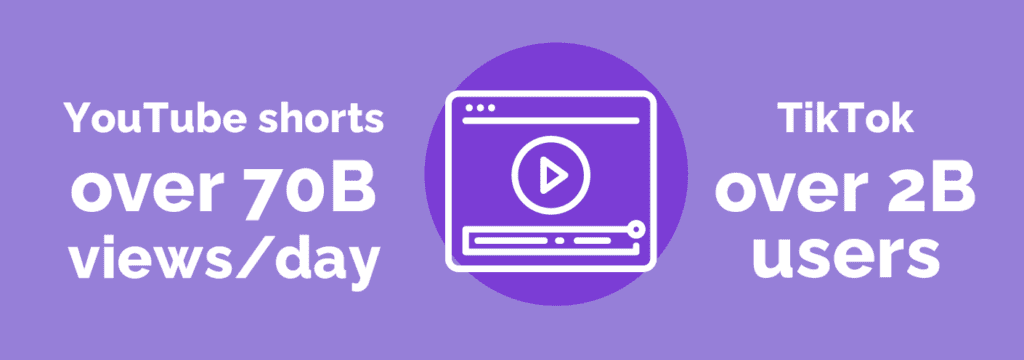
While TikTok is growing in popularity, YouTube retains its title as the top video-sharing platform. Generally speaking, videos are becoming more and more important in the world of social media marketing. YouTube sits behind Google in the list of most visited sites worldwide and over 500 hours of content are uploaded to the site every minute! But TikTok isn’t far behind. The video-forward app is expected to surpass 2 billion users in 2024.
Popular for its short-form video content, TikTok has had a massive influence on the content other platforms are prioritizing. Even YouTube became a direct competitor by offering Shorts, videos that closely follow the TikTok model. This pivot has paid off and Shorts bring YouTube over 70 billion views a day. Promote your brand’s image through a video, engage in fun and relevant trends, let your audience have a peek behind the scenes at your business, or make a how-to video.
16. Is outreach an important part of social media marketing?
Inviting an influencer to write a guest post for your company’s blog is one of the most effective modes of outreach, and social media can significantly boost your outreach efforts. Connect with other influencers in your industry via social media, then build relationships with them through conversations and help them promote their own content. Building a relationship this way before reaching out for a guest blogging opportunity can boost your chances of success. And when your audience sees that you regularly converse with other experts via social media, they’ll see you as an expert, too!
17. How can I use social media marketing to take control of my brand online?

Taking “control” of your brand isn’t really possible anymore, thanks to social media. Whether or not you’re in the conversation, people will talk about you online, and there’s no way for you to “control” what they say. What you can do is join in those conversations and influence them by being a part of them. From negative reviews on Yelp to customer complaints on X, the way to influence your audience’s perception of your brand is to participate in the conversations and steer them in a direction you’re happy with.
18. Should each department in my company have its own social media initiatives?
A company’s social media activities don’t all have to come from the same place, but they do need to be coordinated, and that can be hard to do when each department is doing their own thing. Sending different messages causes more confusion to customers than anything else, so remember: consistency is key.
19. What type of social media content converts best?
Just like question #5, this one depends on your audience. The best way to find out what type of content converts most effectively for you is to test, tweak, and test again until you find the right fit.
20. How much time should social media marketing take each week?
Social media is all real-time marketing. This is both a positive and a negative. Social media is good because it gives you the opportunity to reach your specific audience in real time. Alternatively, timing is everything. Social media management is an all-day task. Consider your marketing goals to determine how much time should be spent on your social channels.
21. How long does it take before I’ll start seeing results from social media marketing?
With social media constantly evolving, this depends on variables such as the time and effort you’re putting into your social media marketing management, budget, audience, strategy, and whether or not you’re using paid ads. Regardless, it’s important to remember that social media is a marathon, not a race.
22. What are some common social media marketing mistakes businesses make?
One of the worst mistakes is inconsistency—only posting sporadically, and not responding when consumers reach out to engage. Another problem is using social media as a place to announce your own content and nothing more, without ever engaging in discussions or adding comments to the post that make your audience want to click, like, or share.
23. Which marketing metrics are the most important to track?

The most important metrics to track are: traffic, conversions, and revenue. Traffic measures the amount of visitors to your website and conversion rate calculates how well they convert into customers. Revenue is how much money you make from each customer.
24. What are some general tips for social media success?
Post consistently. Let your passion and personality shine through. Engage in conversations. Answer questions. Encourage audience engagement. Provide valuable content freely, without getting salesy. Be creative.
25. Is it better to outsource social media marketing, or take care of it in-house?
If your company has all the time and resources it needs to successfully manage social media marketing, then handling it in-house can be beneficial. But allowing a marketing firm like Zen Media to handle your B2B social media marketing frees you up to do what you do best while we do what we do best. We have the experience, expertise, technology, and cutting-edge industry insider knowledge to leverage social media marketing and elevate your business.
26. How can I create content that stands out on social media?

Creating content that stands out on social media requires a focus on high-quality visuals, attention-grabbing headlines and captions, and providing value to your audience through informative or entertaining content. You can also incorporate tactics like using emojis, asking questions, and using humor to make more engaging content.
27. How often should I post on social media?
The frequency of your social media posts depends on the platform and your audience. As a general rule, you should post at least once a day on platforms like X and Instagram, and 2-3 times a week on platforms like Facebook and LinkedIn. However, you should also pay attention to your engagement rates and adjust your posting frequency accordingly.
28. How can I build a strong social media community?
To build a strong social media community, you should regularly engage with your audience, provide valuable content, respond to comments and messages, and participate in relevant discussions, trends, and hashtags. You can also use tactics like hosting social media contests or featuring user-generated content to encourage participation and build relationships with your followers.
29. How can I create a social media content calendar?

To create a content calendar, start by identifying important dates, events, and campaigns that you want to align with your content. This could include holidays, industry events, or product launches. Once you have a list of important dates, determine the types of content you want to create for each date. For example, you might create a promotional post for a product launch, a holiday-themed post for Valentine’s Day, or a behind-the-scenes post for an industry event.
In addition to aligning your content with important dates, it’s also important to include a mix of different types of content in your calendar. This could include photos, videos, blog posts, infographics, or user-generated content. By varying the types of content you post, you can keep your audience engaged and interested in what you have to say.
To organize your content calendar, you can use a template or tool that allows you to schedule your posts in advance. This will help ensure your content is posted during optimal times for maximum reach and engagement.
30. What are some other lesser-known platforms I can use for social media marketing?

TikTok
Although TikTok has gained significant popularity in recent years, it is still a relatively new platform for B2B marketers to tap into. It has a younger demographic and provides an opportunity to create short-form, engaging videos.
Reddit is a platform that allows users to create communities and participate in discussions on a wide range of topics. Marketers can use Reddit to engage with their target audience and share relevant content.
Discord
Like Reddit, Discord is all about community, but brands have more control over the different servers, channels, and moderators. Create a Discord server for your brand, then add channels that are informative, encourage community participation, and provide customer service.
Quora
Quora is a question-and-answer platform where users can ask and answer questions on a wide range of topics. Marketers can use Quora to establish thought leadership and provide valuable insights and advice to potential customers.
Twitch
Twitch is a live-streaming platform primarily used for gaming, but it has a growing community of creatives and influencers. Marketers can use Twitch to sponsor streamers, demonstrate products, or create their own live content.Reach out to us today if you need any assistance with your social media marketing! We’re here to help you build your online community.

